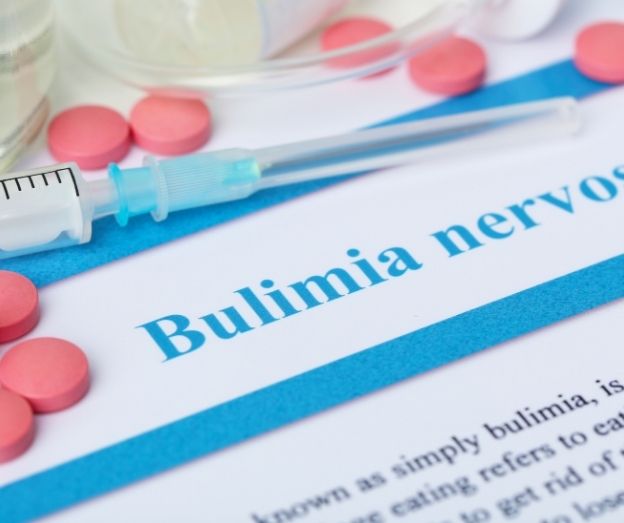Can People Fully Recover from Bulimia? Understanding the Journey to Healing
Can people fully recover from bulimia? Many people wonder if recovery from bulimia is truly possible. The journey is often difficult and varies significantly for each individual. Research shows that about two-thirds of people with bulimia can achieve full recovery over time, especially with the right support and treatment.
Understanding the recovery process can provide hope and encouragement to those affected. Factors such as the length and severity of the disorder, personal circumstances, and available resources can influence recovery outcomes. Early wins in recovery, such as improvements in physical health, often motivate individuals to continue their journey.
Support from professionals, loved ones, and peers plays a vital role in this process. Many find that engaging in therapy or support groups helps them manage their symptoms and rebuild their lives. With commitment and dedication, those battling bulimia can find a path toward lasting recovery.
Understanding Bulimia
Bulimia nervosa is a serious eating disorder characterized by cycles of binge eating followed by purging. Awareness of its definition, symptoms, causes, and risk factors is crucial for understanding this complex condition and the journey toward recovery.
Definition and Symptoms
Bulimia nervosa involves recurrent episodes of consuming large amounts of food followed by behaviors to prevent weight gain. These behaviors can include self-induced vomiting, excessive exercise, or the misuse of laxatives.
Common symptoms of bulimia include:
- Binge eating: Eating a significant amount of food in a short time.
- Purging: Engaging in harmful practices to rid the body of food.
- Fluctuating weight: Noticeable changes in weight over time.
- Physical signs: Vomiting can lead to dental erosion, throat issues, and electrolyte imbalances.
Psychological symptoms may involve feelings of guilt after eating and a preoccupation with body image. Recognizing these signs can help in seeking appropriate help.
Causes and Risk Factors
The development of bulimia is often linked to a combination of factors. These can include:
- Genetics: A family history of eating disorders may increase the risk.
- Psychological issues: Conditions like anxiety, depression, and low self-esteem can contribute.
- Cultural factors: Societal pressures and ideals about body image can influence eating behaviors.
Other risk factors include trauma, family dynamics, and significant life changes. Awareness of these causes can provide insight into prevention and treatment methods for those affected.

Treatment Approaches: Can People Fully Recovery from Bulimia?
Effective treatment for bulimia includes multiple strategies. These often involve psychological counseling, nutritional therapy, and medication. Each approach plays a critical role in helping individuals recover and manage their symptoms.
Psychological Counseling
Psychological counseling is a key component in treating bulimia. This form of therapy helps individuals understand the underlying issues driving their eating behaviors. Techniques like Cognitive Behavioral Therapy (CBT) are often used. CBT focuses on changing negative thought patterns related to food and body image.
Therapists can also help develop coping strategies for stress and triggers. Group therapy offers a support network, allowing individuals to share experiences with others facing similar challenges. Engaging in counseling creates a safe space for patients to express their feelings and learn healthier behaviors.
Nutritional Therapy and Support
Nutritional therapy aims to restore healthy eating habits and promote balanced nutrition. Registered dietitians usually lead this process. They provide individualized meal plans that meet the person’s needs and preferences.
Nutritional education is crucial in this approach. Patients learn about portion sizes, food groups, and the importance of regular meals. Support groups can also reinforce these lessons and create accountability.
Focused discussions about food can help reduce anxiety around eating. This support helps patients develop a positive relationship with food and their bodies.
Medication and Supplements
In some cases, medication may be prescribed to help manage bulimia symptoms. Selective Serotonin Reuptake Inhibitors (SSRIs) are commonly used to reduce binge-eating behaviors and improve mood.
While medication can be effective, it is often combined with therapy for the best results. Supplements might also be suggested to address nutritional deficiencies caused by bingeing and purging.
Regular follow-ups with healthcare providers are important to monitor progress and make adjustments. This comprehensive approach ensures that individuals receive the care they need to support their recovery journey.
Recovery and Management
Managing recovery from bulimia involves creating healthy eating habits and ensuring ongoing support to prevent relapse. These elements are crucial for achieving lasting recovery and improving overall well-being.
Developing Healthy Eating Habits
Establishing balanced eating patterns is essential in recovery. This includes focusing on nutrient-rich foods such as fruits, vegetables, whole grains, lean proteins, and healthy fats. Meal planning can help individuals maintain regular eating schedules, reducing the urge to binge or purge.
A simple guideline might look like this:
- Breakfast: Oatmeal with fruit
- Lunch: Grilled chicken salad
- Snack: Greek yogurt
- Dinner: Quinoa with vegetables
Additionally, individuals should stay mindful while eating, paying attention to hunger and fullness cues. Seeking guidance from a nutritionist may provide personalized strategies and adaptations for specific needs.
Ongoing Support and Relapse Prevention
Support from professionals, family, and friends plays a significant role in recovery. Many individuals benefit from therapy, group support, or counseling. These resources provide a platform to share experiences and learn coping strategies.
Relapse prevention strategies might include:
- Identifying triggers: Recognizing situations or emotions that lead to unhealthy behaviors
- Developing coping skills: Techniques such as deep breathing or journaling can be helpful
- Regular check-ins: Follow-ups with therapists or support groups can keep individuals accountable
Building a strong support network fosters resilience and helps individuals stay focused on their path to recovery. Engaging with others provides encouragement and guidance necessary for sustained change.
Long-Term Outlook
The long-term outlook for individuals recovering from bulimia can vary greatly. Many experience both potential complications while others find ways to measure their success in recovery. Understanding these aspects is essential for awareness and support.
Potential Complications
Recovery from bulimia can lead to several potential long-term complications. Some individuals may face lasting physical issues, such as dental problems due to frequent vomiting. This can include enamel erosion and cavities, affecting oral health significantly.
Psychological effects are also common. Many individuals deal with anxiety, depression, or body image issues even after treatment. These mental health challenges can hinder recovery and require ongoing support.
In some cases, there may be a risk of relapse. Research shows that eating disorders can fluctuate between remission and relapse phases. Therefore, continuous monitoring and self-awareness are crucial for maintaining progress.
Measuring the Success of Recovery
Measuring success in bulimia recovery can take many forms. Medical professionals often look at both physical health and psychological well-being to evaluate progress. Regular check-ups can help identify any lingering health issues.
Personal milestones can also signify success. These can include maintaining a balanced diet, developing a healthier relationship with food, and having positive self-image.
Support systems play a key role in recovery. Friends and family can contribute significantly to a person’s journey. They can provide encouragement and accountability, fostering an environment where recovery is possible.
Ultimately, recovery is unique to each individual, and recognizing personal achievements is important in the long-term process.
Frequently Asked Questions
Individuals often have concerns about the recovery process from bulimia. Below are key questions that address various aspects of treatment, relapse, and long-term maintenance. These are commonly asked questions by those who would ask can people fully recover from bulimia.
What is the success rate of treatment for bulimia?
The success rate for treating bulimia varies among individuals. Many studies indicate that about 50-70% of people experience significant improvement with proper treatment. Success often depends on the type of care received and the commitment of the individual to the recovery process.
Can men have an eating disorder?
Yes, it affects both men and women, but it is more common in woman.
Is it possible to overcome bulimia without professional help?
While some people may attempt to recover on their own, professional help is strongly advised. Support from therapists and healthcare providers can significantly improve the chances of full recovery. The guidance they provide can help address the underlying issues associated with bulimia.
What are the chances of relapse after recovering from bulimia?
Relapse can occur even after a successful recovery from bulimia. Studies show that around 30-50% of individuals may experience a return of symptoms at some point. Stressful situations or emotional distress can trigger these relapses.
How does one maintain recovery from bulimia in the long term?
Long-term recovery involves developing healthy eating habits and coping strategies. Building a strong support network is crucial. Regular check-ins with healthcare professionals can help maintain progress and prevent a return to harmful behaviors.
What are the critical factors that contribute to a full recovery from bulimia?
Critical factors for recovery include early intervention, a supportive environment, and effective treatment plans. Building self-esteem and addressing emotional issues are also vital. Participating in support groups can provide additional encouragement and understanding.
Can bulimia cause permanent damage, or is full health restoration possible?
Bulimia can lead to physical and emotional health issues that may be long-lasting. However, many individuals can achieve full health restoration with proper care. Early treatment often improves the likelihood of reversing damage caused by the disorder.




